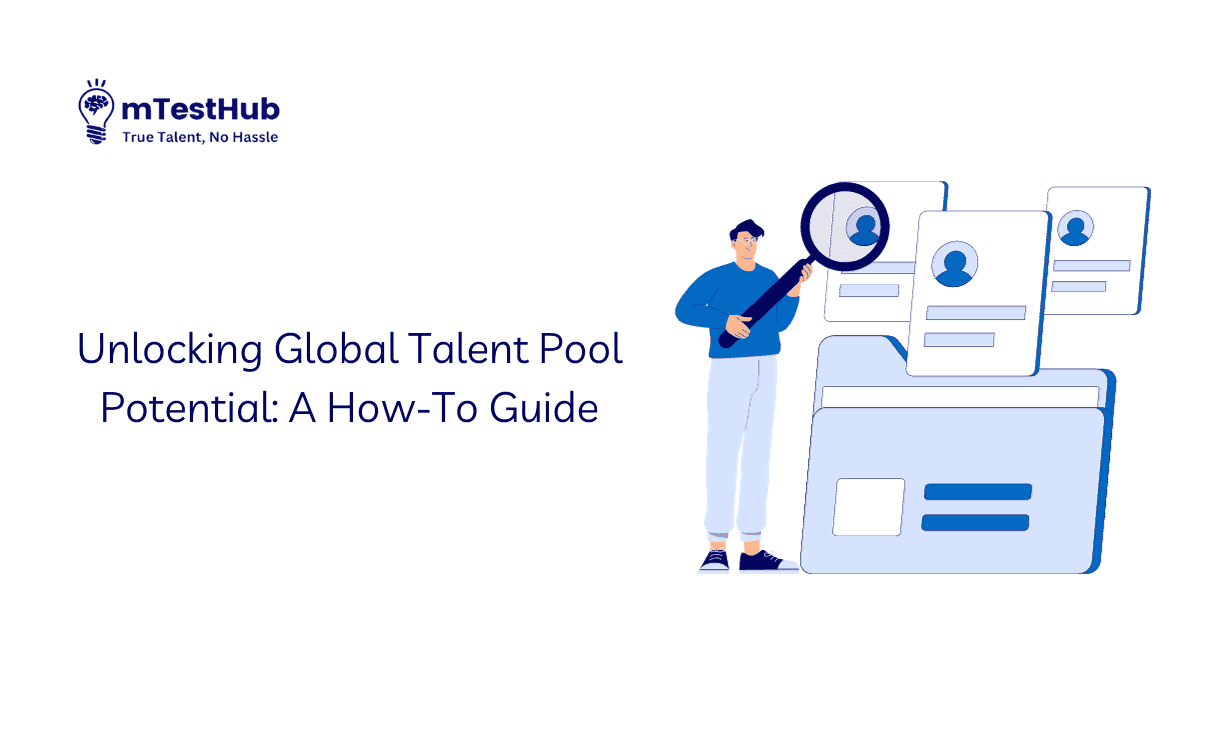Explore strategies to tap into the global talent pool, enhancing your business's diversity and innovation. Learn key insights for successful international recruitment.


Product Marketer. MTestHub
In an increasingly connected world, the talent pool has expanded beyond local boundaries, presenting businesses with the opportunity to tap into a rich reservoir of global talent. Accessing this diverse talent pool can drive innovation, cultural diversity, and competitive advantage.
Because to technological and communication improvements, the global labour is more accessible than ever. According to a LinkedIn research, remote job posts have climbed 2.8 times since the epidemic, demonstrating a rising willingness to hire global talent.
Hiring from a global talent pool broadens your team's viewpoint, boosting creativity and innovation.
Access to a greater range of abilities and experiences, some of which may be uncommon in the local market, is made possible through global recruiting.
With employees in different time zones, businesses can operate beyond the standard 9-5, increasing productivity and responsiveness.
To reach a larger audience, use online recruitment platforms and social media. Global talent recruiting tools like as LinkedIn, Indeed, and Glassdoor are good.
Be aware of cultural differences and adapt your recruitment strategy accordingly. This includes understanding different communication styles, work ethics, and professional expectations.
Ensure compliance with the employment laws and regulations of the countries where your candidates are based. This includes contracts, work permits, and tax regulations.
Develop clear communication strategies to engage with candidates across different time zones and cultural backgrounds.
Create an effective onboarding process to integrate global employees into your company culture. Virtual onboarding sessions and e-learning tools can be particularly effective.
Invest in remote team management tools and methods, such as frequent virtual meetings and project management software.
Foster a company culture that embraces diversity and inclusion. Encourage cross-cultural exchanges and team-building activities.
Establishing local support networks or partnerships can provide on-the-ground assistance to your global employees, such as help with relocation, legal advice, or local community integration.
Pay attention to the health and wellbeing of your remote workforce. Offering benefits like virtual wellness programs or mental health support can make a significant difference in employee satisfaction and retention.
Invest in cutting-edge collaboration solutions that allow for seamless communication across many locations and time zones. Remote teams can benefit from tools such as Slack, Zoom, and Asana.
Implement robust data security measures to protect sensitive information, especially when dealing with a workforce spread across various regions.
Develop policies that promote inclusivity and belonging. This could include flexible working hours to accommodate different time zones or cultural holidays.
Schedule regular check-ins and one-on-one meetings with global team members to ensure they feel connected and valued within the organization.
Provide cross-cultural training to your teams in order to help them comprehend and appreciate diversity. This training can include topics such as communication styles, cultural conventions, and business etiquette in many cultures.
Give your global staff similar opportunity for professional advancement. This offers access to training programmes, coaching, and opportunities for advancement within the organisation.
Evaluate the efficiency of your worldwide recruitment initiatives on a regular basis. To review and modify your strategy, use data like as time-to-hire, employee retention rates, and hiring expenses.
Prepare to modify your tactics in response to criticism and shifting global trends. The flexibility to change your strategy can assist you in better meeting the demands of a broad talent pool.
Harnessing the potential of a global talent pool requires a comprehensive and thoughtful approach. By building a supportive environment, embracing technology, fostering inclusivity, offering continuous learning opportunities, and regularly evaluating recruitment strategies, companies can effectively manage and benefit from a diverse and global workforce. This approach not only enhances the talent pool but also contributes to a richer, more innovative, and adaptable organizational culture.
Be the first to know the latest hiring trends, product updates, and exclusive tips to streamline your recruitment process by joining our newsletter.

Streamlining Recruitment, Assessments, and Exams with AI-driven automation.
We use cookies to improve your experience. By continuing, you consent to their use. Do you accept?